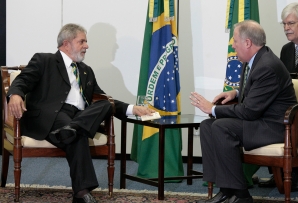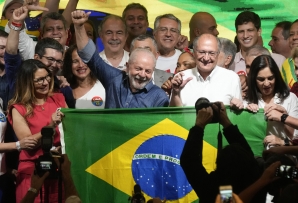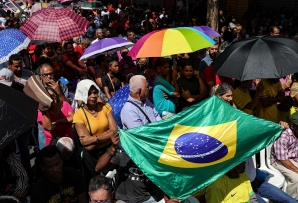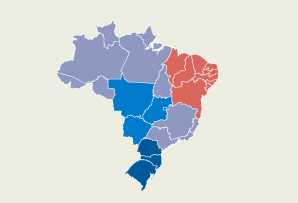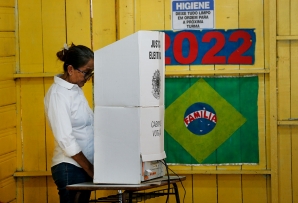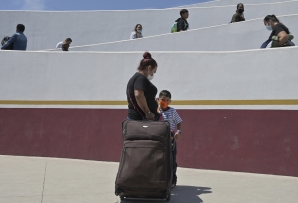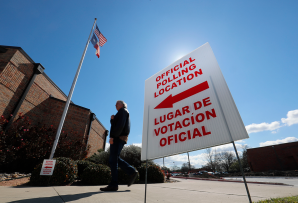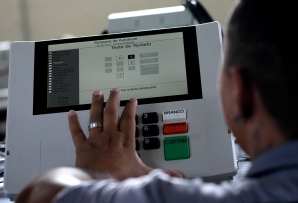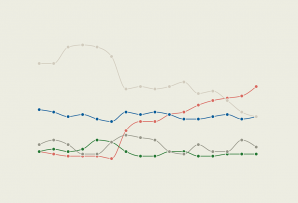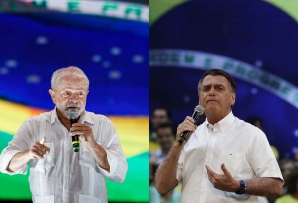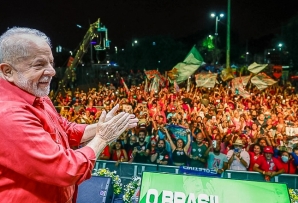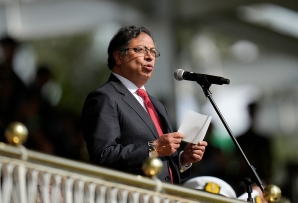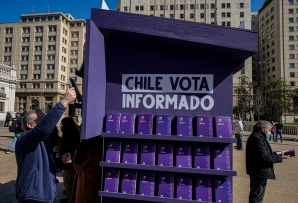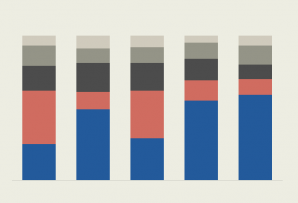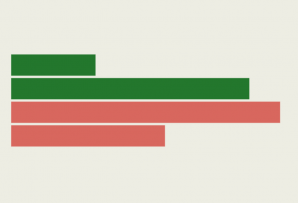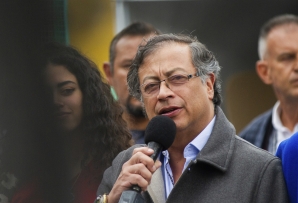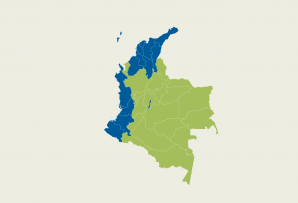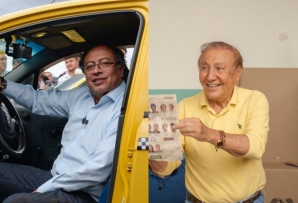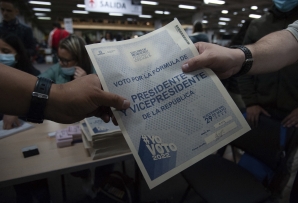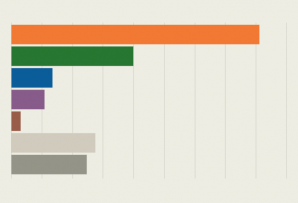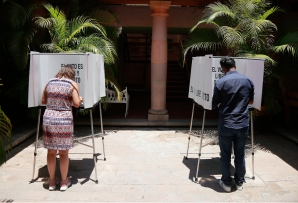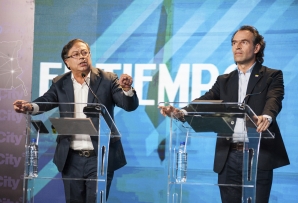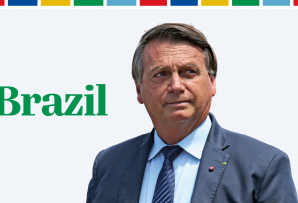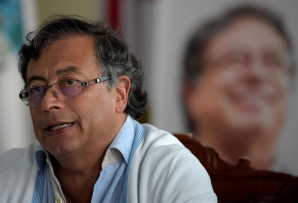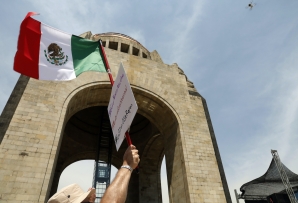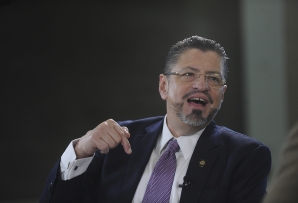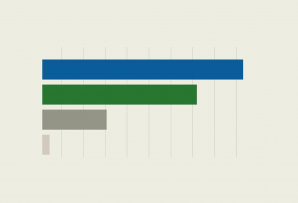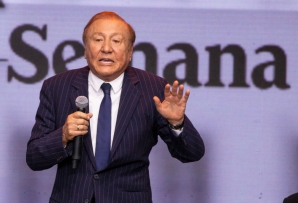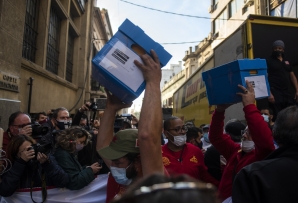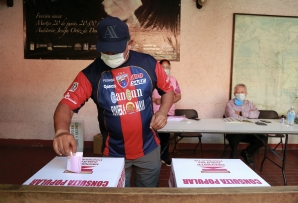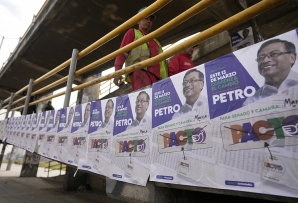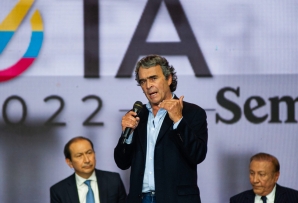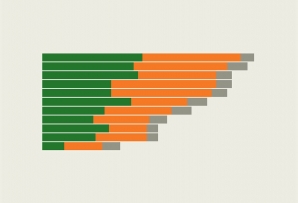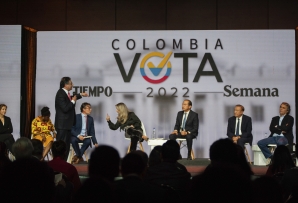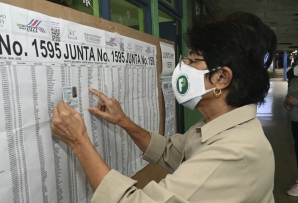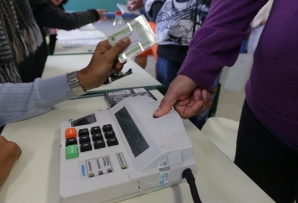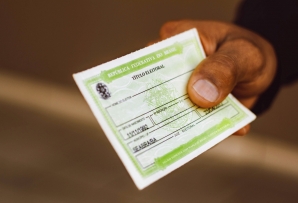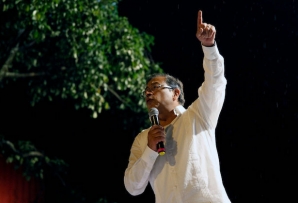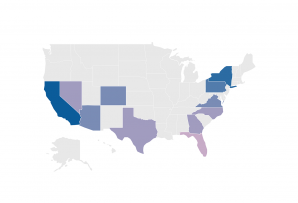A GUIDE TO
In 2022, Latin Americans in three countries will cast ballots for presidents and national legislators while the United States will hold decisive midterms in which the Latino vote will play a crucial role. In addition, multiple countries in the region, such as Mexico and Peru, are slated to hold local elections, while Chile and Uruguay will hold noteworthy referendums. Below, we outline the calendar for this year’s votes. Over the course of 2022, AS/COA will track these events through articles, poll updates, podcasts, and more.
Presidential and legislative election calendar:
Costa Rica: February 6 general elections, April 3 presidential runoff
Colombia: March 13 legislative elections and presidential primaries, May 29 presidential elections, June 19 presidential runoff
Brazil: October 2 general elections, October 30 presidential runoff
United States: November 8 legislative elections
Share
The career diplomat and former U.S. ambassador to Brazil explains what the ex-president’s comeback means for Latin America, the U.S., China, and the world.
AS/COA Online rounds up responses to Luiz Inácio Lula da Silva's October 30 runoff win against incumbent Jair Bolsonaro.
Jair Bolsonaro and Luiz Inácio Lula da Silva face off in the October 30 second round. Learn about campaign strategies, misinformation, and Minas Gerais.
Bolsonaro and his culturally conservative, anti-globalist allies will be a force for many years to come, writes AS/COA's Brian Winter in Foreign Affairs.
Quaest’s Felipe Nunes covers the first round and what's ahead in an October 30 runoff for presidential rivals Luiz Inácio Lula da Silva and Jair Bolsonaro.
After an unexpectedly close first round, see how the race between Lula da Silva and Jair Bolsonaro is shaping up ahead of the October 30 runoff.
After the October 2 vote, see figures around turnout, congressional composition, and more.
From Title 42 to TPS, learn about major U.S. policies affecting Latin American migrants and asylum seekers.
UnidosUS' Clarissa Martínez De Castro and The Washington Post's Sabrina Rodríguez cover issues motivating the voting bloc heading into the U.S. midterms.
Hear the recording of the conversation moderated by AS/COA's Luisa Leme on the October 2 elections.
“It's not clear to me what anyone could do or say at this point that would change most Brazilians' minds,” says the AS/COA vice president.
Ahead of the October 2 first round, learn about the faceoff between Bolsonaro and Lula, as well as congressional contests.
See how competition between presidential hopefuls is shaping up ahead of the October 2 first-round vote.
Quaest pollster Felipe Nunes and John Hopkins’ Beatriz Rey cover the role of swing votes, social media, and secret budgets in October’s elections.
After attending rallies for both Lula and Bolsonaro, AQ’s editor-in-chief reports on a polarized and slightly murky race.
A day after his August 7 inauguration, Colombia's president sent the signature reform to Congress. AS/COA Online talks to experts about what it entails.
Chilean experts Isabel Aninat, Robert Funk, Alejandra Matus, and Andres Velasco preview what’s at stake in the September 4 vote to approve or reject.
AS/COA Online looks at where Latinos in the United States stand on party affiliation, top issues, and support for the Biden administration.
Quaest pollster Felipe Nunes and John Hopkins’ Beatriz Rey cover the role of swing votes, social media, and secret budgets in October’s elections.
Ahead of the September 4 plebiscite, see where Chileans stand on approving or rejecting the new Magna Carta.
Now that the new Colombian president is in office, AS/COA Online covers who is in his team.
The former Bogotá mayor rode a wave of discontent to become the first leftist elected to the presidency.
See how the matchup between Gustavo Petro and Rodolfo Hernández is shaping up ahead of the June 19 vote.
Ahead of the June 19 presidential runoff, read about the candidates' positions on issues such as anti-corruption efforts and economic policy.
The Washington Post's Samantha Schmidt covers how runoff candidates Gustavo Petro and Rodolfo Hernández are shaking up the political landscape.
See how the competition between presidential hopefuls is shaping up ahead of the May 29 first-round vote.
With parties setting sights on the 2024 presidential vote, there’s a lot riding on the six governors’ races taking place June 5.
The award-winning journalist talks candidates, previews the runoff, and explains why Colombian voters want a change from the status quo.
This article is adapted from AQ’s special report on the Summit of the Americas.
Colombia Risk Analysis’ Sergio Guzmán and Fundação Getulio Vargas’ Thomas Traumann cover vice-presidential picks in the region’s two big 2022 elections.
The former Bogotá mayor is making his third run at the presidency and is leading in polls. Has he changed, or has the country?
The editor-in-chief of AS/COA Online covers the connections between the April 10 presidential recall referendum, energy and electoral reforms, and U.S.-Mexico ties.
AQ’s editor-in-chief returns to Brazil and finds an unexpectedly open 2022 election.
Amid low turnout, the economist won the April 3 runoff against ex-President José María Figueres.
See where economist Rodrigo Chaves and former President José María Figueres stand in CIEP polls ahead of the April 3 vote.
Win or lose, Rodolfo Hernández’s rise reflects the deep discontent in Colombian politics.
The opposition-backed referendum on March 27 serves as a proxy midterm for the Luis Lacalle Pou administration, say experts.
All signs point to Andrés Manuel López Obrador staying in power after the April 10 referendum on his mandate. So why hold it? Gatopardo’s Fernanda Caso explains the debate over the recall.
Will the country change political course? Ahead of the May 29 first round, we look at the top presidential candidates.
Centrist politicians appeared to have learned lessons from 2018. But ahead of elections in May, unity – and success – look increasingly unlikely.
Market experts warned that fiscal reform and resilient institutions are key to ensuring stability and growth.
Three primary-like votes will eliminate more than half of a large, unwieldy presidential field.
Ahead of March’s presidential primaries and legislative elections, Albright Stonebridge Group’s Muni Jensen previews what’s at stake for the country’s democracy.
Economist Rodrigo Chaves outperformed polls to place second and secure a spot against former President José María Figueres in the April 3 runoff.
Brazil, Colombia, and Costa Rica will hold presidential and legislative votes this year, but those aren't the only elections taking place in the hemisphere.
Brasil, Colombia, y Costa Rica tendrán elecciones presidenciales y legislativas este año, pero esas no son las únicas votaciones que se llevarán a cabo en la región.
Amid concerns about debt and unemployment, Ticos vote for a president and legislators on February 6. Learn more and see what the polls say.
The left-wing candidate for Colombia’s presidency is building new alliances, and straining old ones.
Amid fears Bolsonaro may try to prevent a peaceful transition, generals emerge as key power brokers.
A year out from the presidential vote, IDEIA Big Data’s Mauricio Moura covers how the president’s approval, Covid-19, and technology are shaping what’s to come.
There’s a lot more to see when you look beyond Florida.







